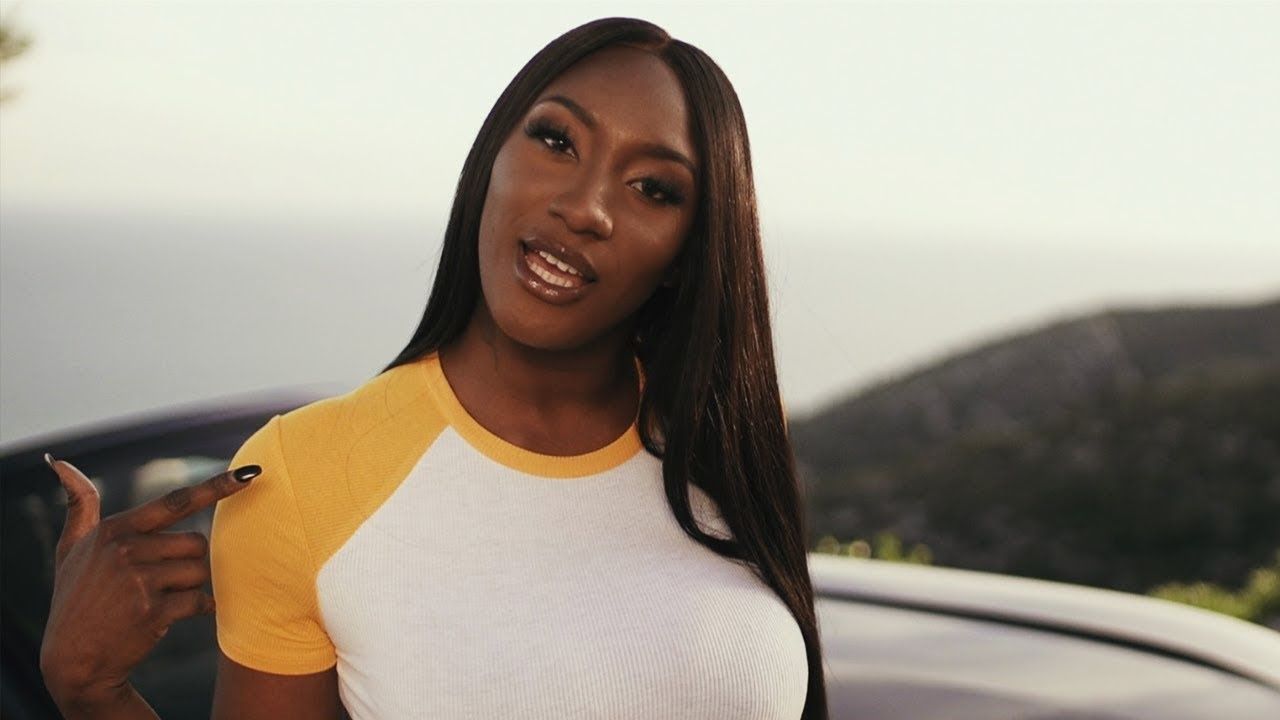The Black Women Who Made Big Strides in France in 2018
Yes, this was a bad year for many reasons, but we can still celebrate the black women who rose to prominence

Back in 2015, a group of Black women activists appeared in the French media: les afrofems. They were and still are, fighting against police brutality, for better inclusion in the media and to destroy harmful sexual stereotypes surrounding black women among other worthy goals. Since then, more influential Black women have gained a bigger representation in the media. And, even better, some of the afrofems activists, like Laura Nsafou and Amandine Gay, have made films and written books to bring more diversity to the entertainment industry.
2018 has, in many ways, been a year where black women made strides in France, at least in terms of culture. From winning Nobel prizes, to having best selling books and being on top of the charts, Black French women have showed that, no matter how much France wants to keep them under the radar, they're making moves. And, no matter the tragedies and terrible events that have shaped the year, it is something worth celebrating.
France's New Queen of Pop Music
Aya Nakamura - Djadja (Clip officiel)We begin with Aya Nakamura, France's new queen of pop music. Her song Djadja was a summer hit. Everyone from Rihanna, to the French football team who successfully won their second world cup, sang it. Her sophomore album "Nakamura" has been certified gold in France and is still on top of the charts. She is the first French singer to have a number one album in the Netherlands since Edith Piaf in 1961. The last time a black woman was as visible in pop music was in 2004, with Lynsha's single "Hommes...Femmes".
Nakamura has received a huge backlash, mostly due to misogynoir—misogyny directed towards black women where race and gender both play roles. From a French presenter butchering her African first name despite the fact that he can easily pronounce words like "Aliagas", to online trolls calling her ugly and manly when a picture of her wearing no makeup surfaced, to people complaining that she is bringing down the quality of the entire French pop music industry, Nakamura responds to her critics gracefully. Her music is not groundbreaking but her album is full of catchy songs with lyrics using French slang she masters so well that she came up with her own words like "en catchana" (aka doggy style sex). And most importantly, many black girls and women can finally see someone like them in the media getting the success she deserves.
The Nobel Prize Winner
Another Black French woman has broken records this year: the Guadeloupean writer Maryse Condé who won the Alternative Nobel Prize, a prize meant to replace the Nobel Prize in Literature, after the scandal that the Swedish Academy of Literature faced last year. Condé wrote her first novel at only 11 years old and has been prolific ever since. A former professor of French literature at Columbia University, she has published more than 20 books since the 1970s, exploring the complex relationships within the African diaspora. "Segu", her most famous novel, is about the impact of the slave trade and Abrahamic religion on the Bambara empire in Mali in the 19th century. Condé's work is radical and she remains committed to writing feminist texts exploring the link between gender, race and class, as well as exploring the impact of colonialism. Condé is a pillar of Caribbean literature and it's taken long enough for her work has been acknowledged by the Nobel prize committee.
The Children's Books Writers
From Comme un Million de Papillon Noir
And finally, 2018 has been the year where France's children's literature industry has finally understood how important, for the public, writers and publishers, being inclusive and diverse was. From Laura Nsafou's Comme un Million de Papillon Noir, a best selling book about a young black girl learning to love her natural hair which sold more than 6000 copies, to Neiba Je-sais-tout: Un Portable dans le Cartable, the second book of Madina Guissé published this year after a successful crowdfunding campaign, there are more and more children's and young adult books with non white protagonists. In France, there are still no stats about how diversity is doing, but in America, in 2017, only 7 percent of writers of children's literature were either Black, Latino or Native American.
There's still much to accomplish in France for the Black community to have better representation in the media, politics and all walks of life, but important strides have been accomplished this year, and it make me hopeful for what 2019 and the following years have in store.
- Meet Heezy Lee, the Masked Producer Behind French Rap Hits - OkayAfrica ›
- These are the 150 Best Albums Made by African Women - OkayAfrica ›
- A la tête de la version Française du mouvement “Black Lives Matter” Assa Traoré continue de se battre pour son frère, Adama - Okayplayer ›
- Interview: How Félicity Ben Rejeb Price Is Reinventing the Afro-French Music Video - Okayplayer ›
- 100 Women: A Playlist of Our Favorite Female Artists & Anthems - Okayplayer ›
- Introducing OkayAfrica's 100 Women 2019 List - OkayAfrica ›
- 100 Women Letter From the Editor - Okayplayer ›